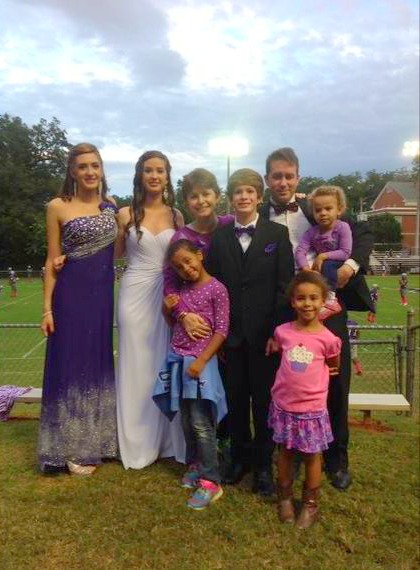
Perhaps one of the most difficult aspects of being a foster parent is the moment when our child from foster care leaves our homes. As a foster parent, our home becomes a place where children placed in the foster care system come for a period of time, with the goal of being reunited with their family in the near future. Reunification is not possible for some foster children, and the birth parents' rights are terminated. As a result, these children become available for adoption, and some foster parents do indeed end up making their foster child a permanent addition to their family through adoption. I have been blessed to adopt three children from foster care, myself. If reunification is not possible with the birth parents, many foster children instead are placed into a birth family member's home. Whatever the reason might be, reunification can be a difficult time for foster parents, as the child they have come to love leaves their home. Indeed, for many foster parents, contact with a former foster child after reunification is a time of deep sadness and grief, as there is no closure for the foster parents. Sadly, I have also faced two failed adoptions, as well, leaving my family devastated.
Quite simply, we grieve the loss of a child.
Each foster child is different, and each placement into a home creates different sets of emotions. As a foster parent, there may be those children we may not have strong attachments to, due to emotional or behavioral issues, yet an attachment with these children is still made, nonetheless. Some foster children will be so difficult, that they may even have to be removed for the safety of all. Still, other foster children will steal our hearts, and will become a dear and cherished member of our families, leaving you heartbroken. When any foster child leaves our homes, no matter the level of attachment, there will be emotions when it is time to say goodbye, for both ourselves and the child. Rest assured, many foster parents do feel grief during the removal of their foster child, as the child has come to be an important and loved member of their family. After all, the removal of a foster child from a foster home is akin to a loss, and any loss can cause grieving.
There are times when the removal of a foster child from may come suddenly, and without any prior warning. We may only have a few days, or even a few hours, before our child from foster care is to move. This may be due to a court order, health reasons, or placement into another foster home. Other times, plenty of notice is given to the foster parents beforehand. Whenever we are told, there will sure to be emotions involved, for both our families and the foster child.
Grief can be expressed in variety of ways, depending upon the individual, as it is personal. Some will shed tears and cry while others will hold it inside. Some will busy themselves in a task, while other will seem detached and far away. Some will blame the system, while others will suffer from depression. The departure of our child from foster care from our home can be one that is devastating our family. These same feelings may be felt by our foster child when he is removed from his own home, and first placed in ours.
I have watched over 45 children come to live with me and my family, and then move to other homes. Each time, my wife and I have grown to love these children, caring for them as if they were our very own, and treating them the same as all the others in our home; biological, adoptive, or foster. Each time a child leaves, my wife and I experience a great sense of loss, even when we can be comforted with the knowledge that the children have gone to a good and safe home. There have been times when my wife has sunk into deep grief, crying for days. We have both spent considerable time on our knees, lifting up a former foster child up in prayer.
To be sure, it is hard being a foster parent. The grief when a child leaves can, at times, be over whelming and consuming. It is like losing a child, a member of our family. Yet, I don't want to give up when a child leaves, because my heart is heavy. There are other children out there, right now, who need a home and need a family. There is a child out there right now who needs us to love him. There is a child out there right now who needs YOU to love him.
Dr. John DeGarmo has been a foster parent for 13 years, now, and he and his wife have had over 45 children come through their home. He is a speaker and trainer on many topics about the foster care system, and travels around the nation delivering passionate, dynamic, energetic, and informative presentations. Dr. DeGarmo is the author of several foster care books, including the brand new book Helping Foster Children in School: A Guide for Foster Parents, Caseworkers, and Teachers, and writes for several publications, including Foster Focus magazine. Dr. DeGarmo is the host of the weekly radio program Foster Talk with Dr. John, He can be contacted at drjohndegarmo@gmail, through his Facebook page, Dr. John DeGarmo, or at his website.